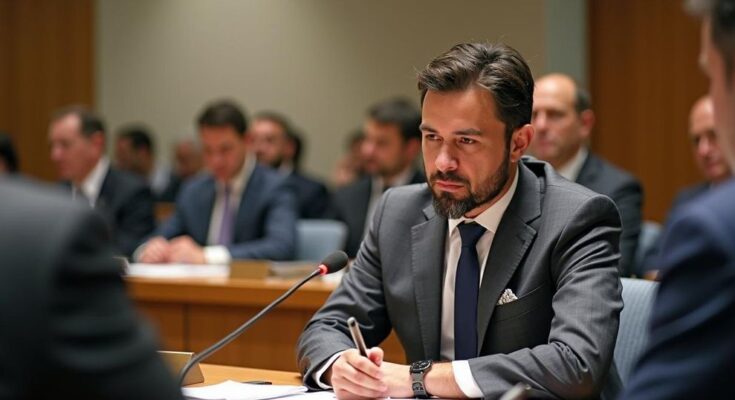The International Service for Human Rights criticized the U.N. Human Rights Council for its inadequate resolution responding to the human rights crisis in Afghanistan. The resolution lacks an independent mechanism for accountability, which could capture evidence of serious abuses, particularly gender-based violence. Although it provides some foundational elements for future actions, urgent appeals for robust justice measures, particularly for women and girls, remain essential.
In a recent revelation, the International Service for Human Rights (ISHR) has levied sharp criticism against the United Nations Human Rights Council regarding its tepid response to the mounting human rights crisis that has gripped Afghanistan. The organization voiced its discontent over a recent resolution, implying that it inadequately addresses the dire need for justice, accountability, and reparations for egregious human rights violations. Among these abuses, some may even be classified as crimes against humanity, particularly highlighting gender-based persecution that particularly affects women and girls. ISHR pointed out the glaring absence of an independent mechanism in the resolution, one that is vital for gathering and preserving evidence of international crimes committed in Afghanistan. This mechanism is considered essential to fortify accountability initiatives, enabling meaningful cases at both the International Criminal Court and the International Court of Justice. Despite this shortfall, ISHR noted that the resolution does offer some hope, as it hints at accountability measures, including strategies for evidence preservation, which could act as a foundational “blueprint for future action.” An important voice in this conversation is South Africa, which, during the resolution’s adoption, emphasized the necessity of building on this document, asserting that the Human Rights Council must indeed strengthen its commitment to uphold human rights moving forward. The resolution takes note of a recent report drafted by the Office of the High Commissioner for Human Rights (OHCHR), a document that speaks to the urgent need to address the lingering impunity for widespread abuses in Afghanistan. This report advocates for a thorough, multifaceted, and gender-sensitive approach to ensure that the needs of victims are prioritized in any accountability endeavors. Tess McEvoy, the head of ISHR, articulated the pressing demand for an independent accountability mechanism that focuses on the gender-based dimensions of the human rights violations in Afghanistan. She stated, “An independent accountability mechanism is urgently needed to address past and ongoing abuses, with a gender-responsive approach to justice for all, including women and girls.” Moreover, the resolution has extended the mandate of Richard Bennett, the U.N. Special Rapporteur for Afghanistan, entrusting him with the crucial task of monitoring the human rights scenario in the country amidst the restrictive environment imposed by Taliban rule.
The ongoing human rights crisis in Afghanistan, which escalated following the Taliban’s resurgence in power, has prompted alarm among various international watchdogs. The escalating persecution particularly targets women and marginalized groups, leading to severe violations of fundamental rights. The U.N. Human Rights Council’s role in addressing these violations becomes critical, especially when calls for accountability and justice resonate globally. The backdrop of ISHR’s critique highlights the Council’s perceived failures in offering robust mechanisms to address these urgent concerns, an issue made more pressing by a recent report from the OHCHR that outlines the need for comprehensive accountability efforts in Afghanistan.
In conclusion, the International Service for Human Rights has cast a spotlight on the shortcomings of the U.N. Human Rights Council’s recent actions concerning Afghanistan’s human rights crisis. While the resolution acknowledges the necessity of accountability, it falls short in establishing an adequate independent investigative mechanism. This leaves a void that must be urgently addressed to ensure justice for victims of widespread abuses, particularly women and girls. The path forward requires a concerted effort to build on existing frameworks and to prioritize gender-responsive justice measures, reaffirming the global commitment to human rights protection in the face of adversity.
Original Source: amu.tv



